PV oversizing for increased profitability (3/3)
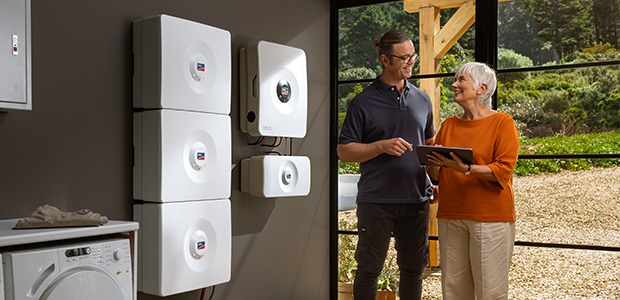
After demonstrating the advantages of PV oversizing or overdimensioning and investigating the key factors for success, we now explore the key strategies for making the most of the available solar energy, focusing on the critical roles of the inverter, battery storage, and intelligent energy management. The ultimate goal is to help homeowners achieve greater self-consumption and returns on their solar investment.
A suitable inverter to handle the surplus in solar energy
Putting more solar panels on the roof is a waste of money if the inverter cannot handle the solar energy they generate or if all surplus electricity is simply injected into the grid at a low tariff.
To maximize self-consumption of solar energy generated by an oversized installation, selecting a hybrid inverter capable of efficiently converting all available solar energy into usable electricity and storing the surplus in a battery is paramount.
The Sunny Boy Smart Energy is a hybrid inverter, which means that it is a combination of a PV inverter and a battery inverter. It allows oversizing on the PV side up to 200%. If there is much more electricity available than what is needed to feed the household appliances, then this inverter can charge the battery and at the same time feed surplus electricity into the grid.
Adding storage for more self-consumption and peace of mind
In many regions, the tariff households get for electricity injected into the grid is lower than the one charged for buying from the grid. In other regions, households are penalized for injecting electricity into the grid. This makes self-consumption of surplus solar energy generated by PV oversizing the best option and the fastest way to get a return on investment. Organizing one’s live in order to consume electricity when the sun shines is difficult and, in many cases, simply impossible. Therefore, in most cases, PV oversizing only makes sense if a battery is added to the PV system. The cheapest option – even if a battery is only going to be added at a later stage – is to go for a hybrid inverter that is PV inverter and battery inverter in one.
The Sunny Boy Smart Energy enables fast charging of the battery, ensuring efficient storage and utilization of solar energy, even during periods of fluctuating sunlight or high energy demand. SMA’s hybrid inverter performs best with the SMA Home Storage. This modular battery is built to handle intensive usage and therefore very well suited for oversized systems. With 10 years’ warranty and 8,000 life cycles guaranteed, it offers households piece of mind for a very long time.*
* The Sunny Boy Smart Energy is also compatible with high-voltage batteries from major manufacturers.
** available with a later release
Optimizing energy flows for even lower energy bills
Energy management might sound like something intangible and vague, but consuming solar energy when it is available is a smart way for homeowners to buy even less expensive electricity from the grid. Unfortunately, the sun shines brightest during the day, when most homeowners are at work. Their need for electricity is highest in the morning and at the end of the day, to prepare meals, take a shower and use household appliances. That’s where smart energy management comes in. Ideally combined with storage, it allows to consume as much solar energy as possible when it is available and at the same time store maximum cheap electricity to be available when it is needed, maintaining the same level of comfort.
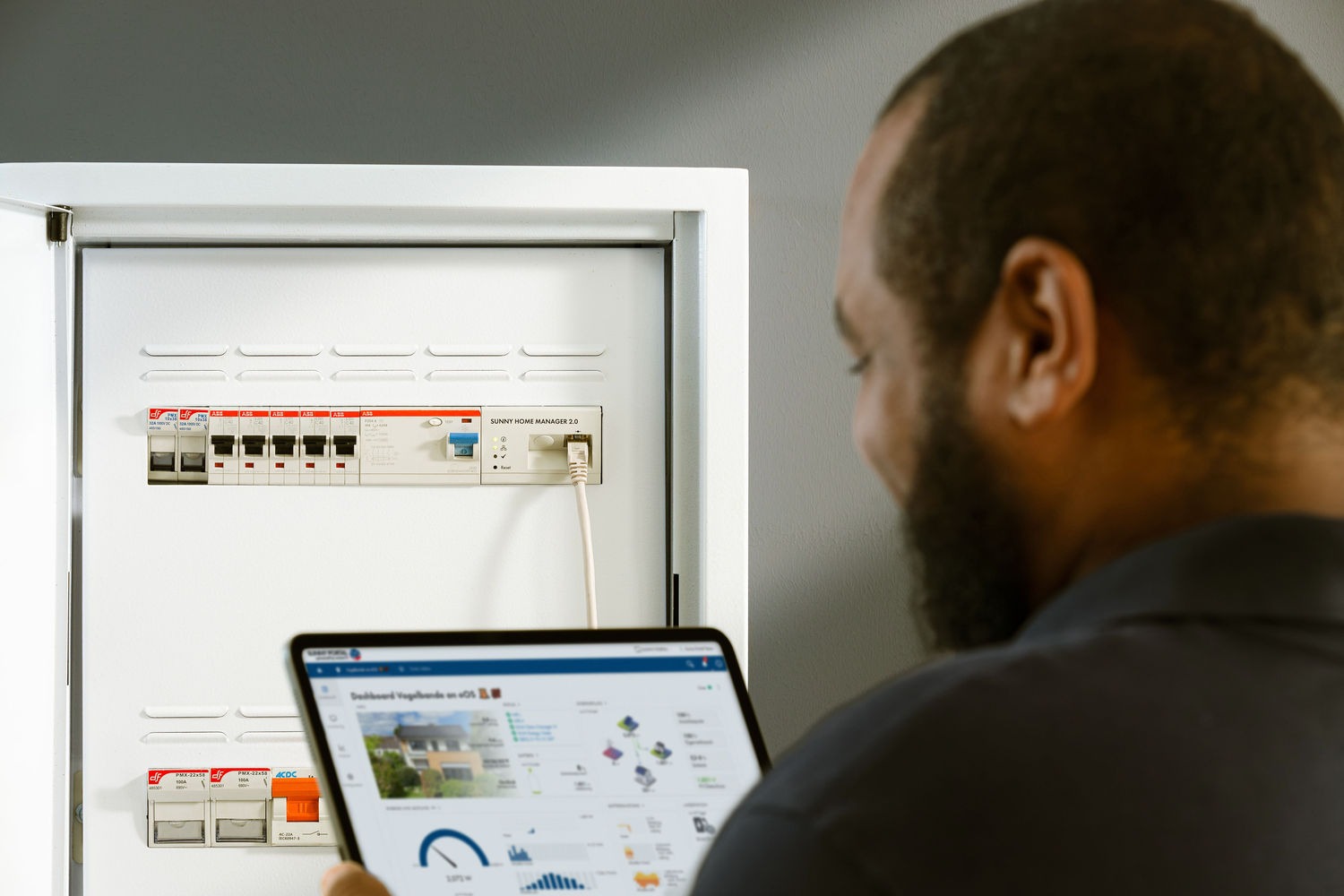 Connected to the PV system, all key household appliances, the optional battery-storage system and/or electric vehicle, the Sunny Home Manager always knows how much energy is available and where it is needed. Aided by a weather forecast from Internet data and individual adaptation to local conditions, it is able to accurately predict solar irradiation and the load in the household for a few hours into the future and supply the connected household appliances with low cost PV energy. Thanks to the self-learning function of the Sunny Home Manager 2.0, appliances, such as the heat pump, run exactly when there is sufficient sunlight available, making it possible to cover electric power demand by solar production.
Connected to the PV system, all key household appliances, the optional battery-storage system and/or electric vehicle, the Sunny Home Manager always knows how much energy is available and where it is needed. Aided by a weather forecast from Internet data and individual adaptation to local conditions, it is able to accurately predict solar irradiation and the load in the household for a few hours into the future and supply the connected household appliances with low cost PV energy. Thanks to the self-learning function of the Sunny Home Manager 2.0, appliances, such as the heat pump, run exactly when there is sufficient sunlight available, making it possible to cover electric power demand by solar production.

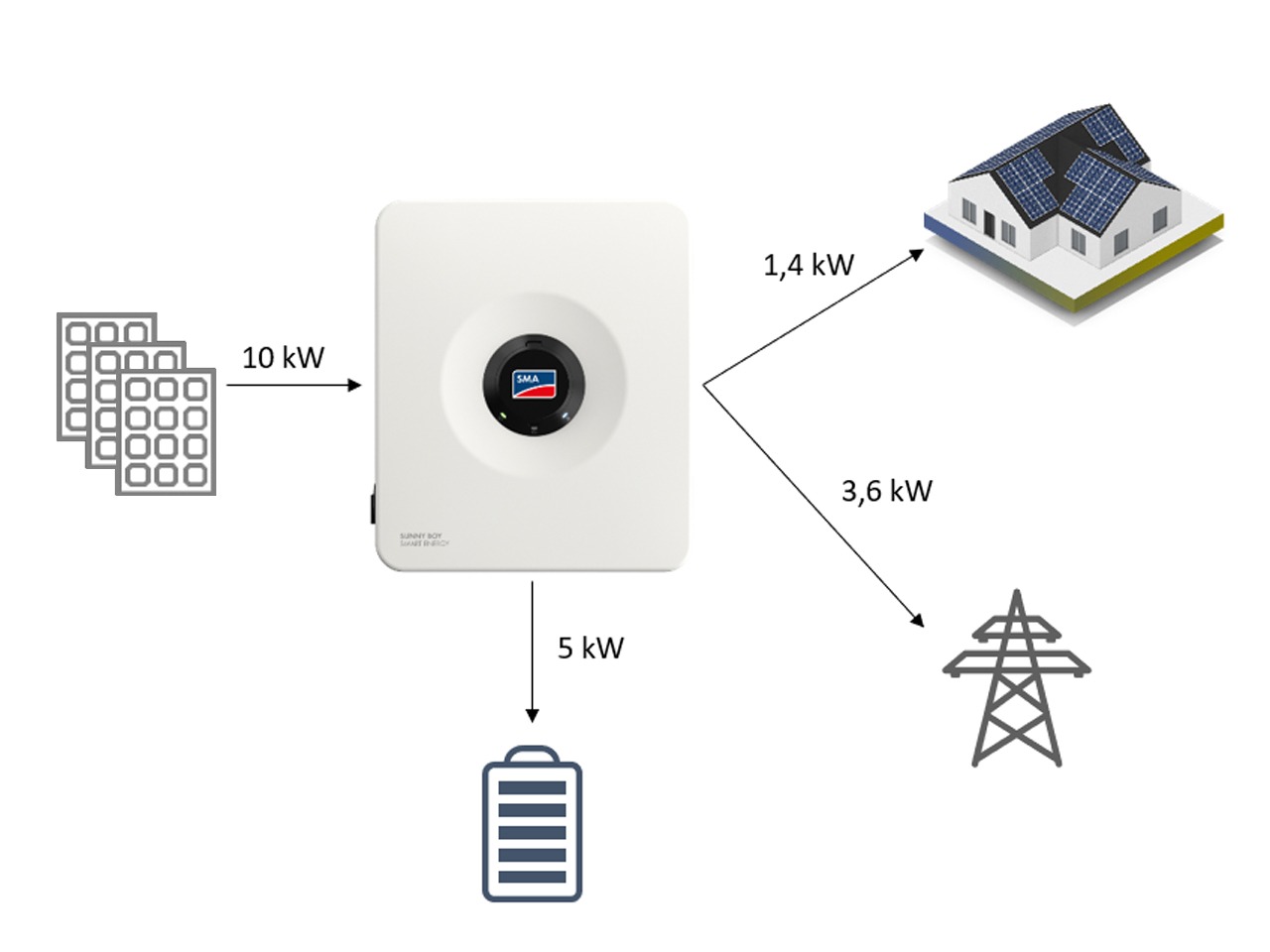


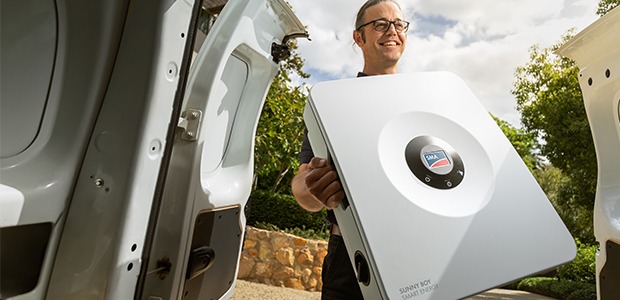
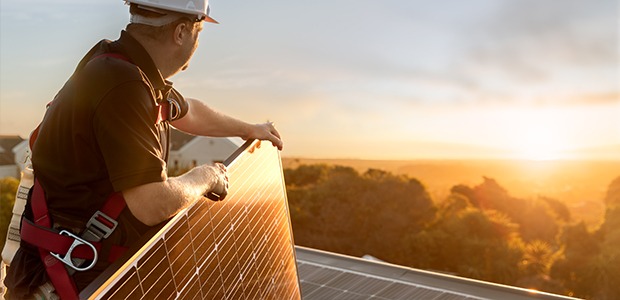
Feel free to contribute!